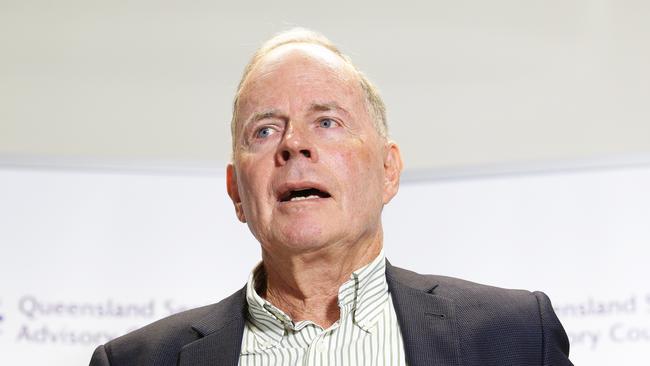Jail ‘not a must’ for offenders under 14 in Queensland
A push to raise the minimum age of criminal responsibility nationally is under way after the Queensland government’s adviser on sentencing said ‘alternative responses’ could be considered for children.

A push to raise the minimum age of criminal responsibility nationally is under way after the Queensland government’s adviser on sentencing said “alternative responses” could be considered for children.
New statistics on youth offending released by the Queensland Sentencing Advisory Council on Thursday show fewer than 10 per cent of all young people sentenced between 2005 and 2022 were under the age of 14.
States remain split on whether to increase the minimum age of criminal responsibility from 10 to 14, despite a report in December recommending it be lifted without exception.
Council chair John Robertson, a former Children’s Court president, said low numbers suggested that alternative responses to sentencing could be considered for younger children.
“Research has shown that children who come into the criminal justice system at a young age are more likely to reoffend,” he said. “When we consider the life circumstances of many of these younger children, and the type of offending they engage in, it is not surprising there are questions being asked about the benefits of criminalising children at such a young age.”
Mr Robertson said most children younger than 14 were sentenced for property offences such as unlawful entry, wilful damage and stealing.
The report found courts were most likely to give reprimands and probation orders to children younger than 14, with only 2.1 per cent of offenders sentenced to detention.
“If the minimum age of criminal responsibility is raised, the low numbers in this cohort suggest it should be feasible to develop alternative responses to properly support these young children and give them the best opportunity to stop offending,” Mr Robertson said. “However, we do acknowledge that this must be balanced with the fact that a very small proportion of this cohort are committing very serious offences.”
The council’s report found more than half of children aged 10 to 13 who were sentenced were Indigenous.
The criminal age of responsibility is legislated at 10 years across Australia, with the Northern Territory set to increase it to 12 later this year and the ACT committed to lifting it to 14 in 2027. Tasmania plans to increase the minimum age of youth detention from 10 to 14 years.
Victorian Premier Daniel Andrews in February said his state would go it alone with raising the age of criminal responsibility if state and territory governments failed to reach consensus. “We’d prefer not to do that – I think a national law would be better – but at some point you have to call time on national processes that just don’t deliver,” he said.
Queensland Deputy Premier Steven Miles said his state planned to be “in step” with other jurisdictions. “I believe it is important that it is set at a national level and the attorneys-general continue to discuss that,” he said.
“We shouldn’t have a situation where somebody is treated differently depending on which side of the Tweed River they are on.”
The sentencing report was released days before state parliament is due to debate Labor’s proposed tougher youth justice laws, which have been attacked by former judges, lawyers, criminologists and youth advocates.
Under the new suite of reforms, drafted in response to growing community anger over a spate of high-profile alleged crimes over summer, children who breach bail conditions will face two years’ imprisonment.
Laws will also be amended to mandate that courts take into account previous bail and criminal history when sentencing.




To join the conversation, please log in. Don't have an account? Register
Join the conversation, you are commenting as Logout